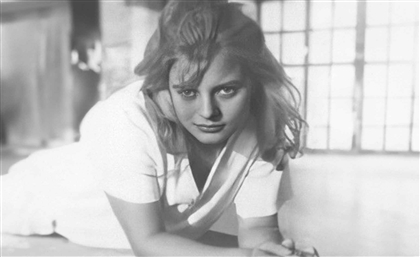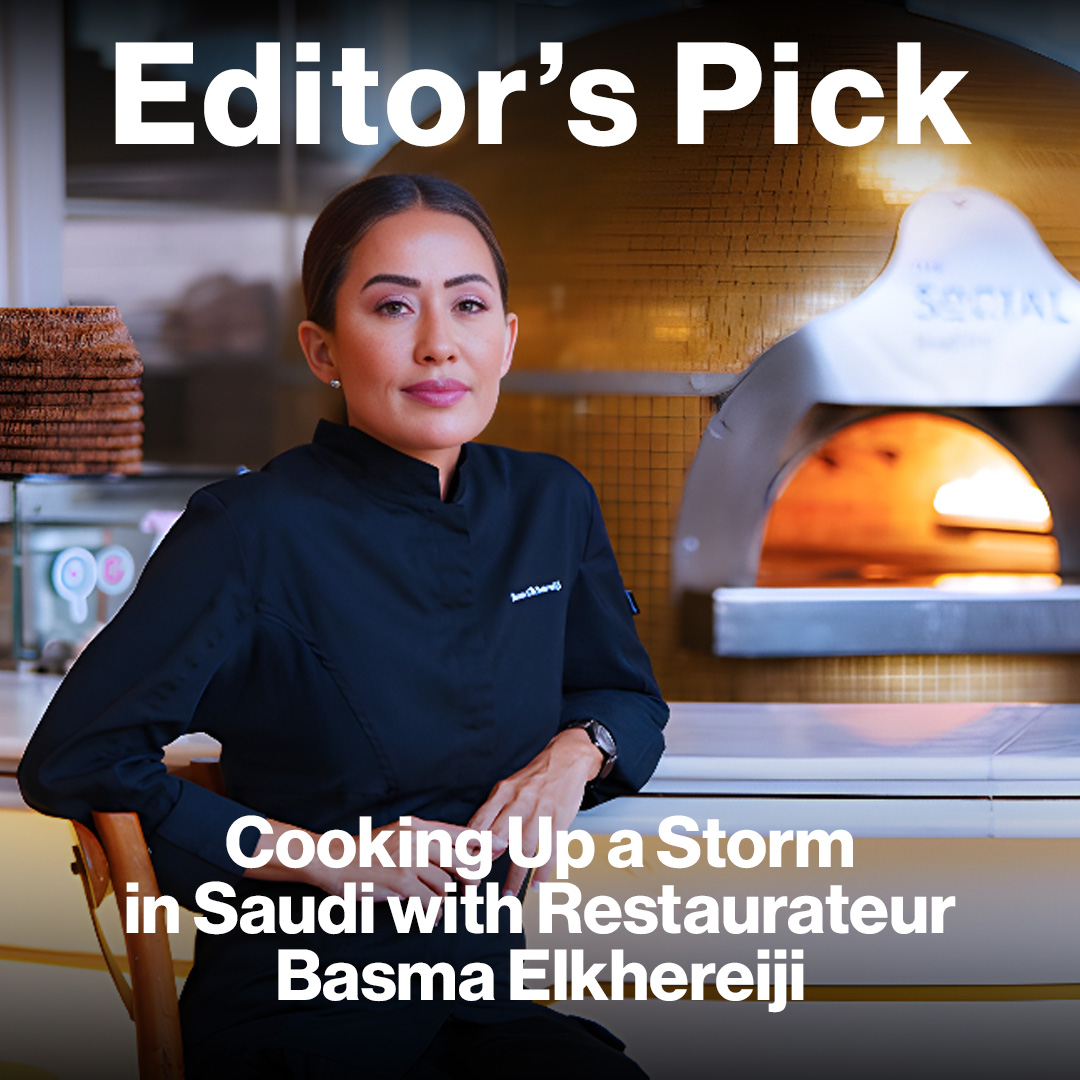The Saudi Startup Tackling Food Waste in the Middle East
Founded in 2022 by Rabah Habiss and Abdulaziz Al Saud, Barakah tackles food waste by enabling bakeries, groceries and restaurants to sell their surplus through its app.

Food waste is a big problem in the Middle East. It is estimated that a third of all food produced globally is wasted, with the GCC being among the biggest food wasters in the world, according to the Food and Agriculture Organization (FAO). Amongst the nations leading in food waste in the region is Saudi Arabia, wasting about 33.1% of its food, which is worth $10.77 billion annually, according to a study by the Saudi Grains Organization (SAGO).
Recognizing the enormous amount of food waste in the Kingdom, foodtech startup Barakah decided to address this problem. Founded in 2022 by Rabah Habiss and Abdulaziz Al Saud, Barakah tackles food waste by enabling bakeries, groceries and restaurants to sell their surplus through its app, providing a cost-effective and convenient way to repurpose food for both retailers and customers.
A serial entrepreneur, Al Saud has always had a keen interest in sustainability, with his first company Arabian Power focusing on renewable energy for domestic consumption. But after learning about the scale of food waste in the Kingdom, he and his co-founder decided to bring Barakah to life. “We’ve always taken exception to the large amounts of food waste that we grew up around, both culturally in our households, and at F&B outlets,” Al Saud tells StartupScene. “And then what really crystallized our decision to pursue Barakah as a venture was learning about a study that showed the amount of food waste in the Kingdom. That really drove and pushed us to create a scalable model towards tackling this problem.”
The startup today works with over 1,000 retailers across the country including Cinnabon, Starbucks and Dunkin Donuts, amongst others, and has sold almost one million meals that would have otherwise gone to waste. It is now looking to expand beyond the Kingdom into the GCC by as early as Q4 2024.
CREATING A MARKETPLACE
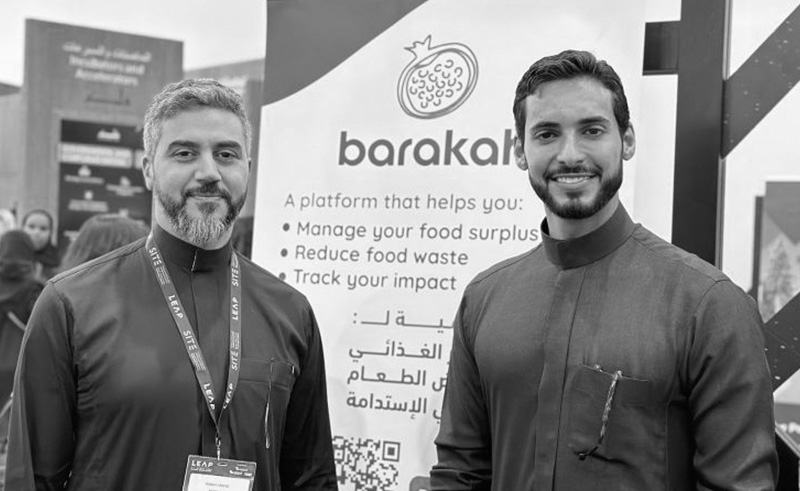
While food waste is harmful to the environment, contributing about 8% to 10% of global greenhouse gas emissions according to the World Resources Institute, it is also damaging to businesses. They lose billions of dollars in revenue, and increasingly incur higher costs in waste management.
But with every challenge lies an opportunity. For Barakah, establishing an online marketplace that connects food retailers directly with consumers was the ideal solution. Businesses not only reduce their waste, but also have an alternative source of revenue. At the same time, customers have access to affordable and sustainable food options. “It's really a win-win-win,” says Al Saud.
Since launching early last year, the startup has had remarkable success. It is now available in seven cities across Saudi Arabia, and has become one of the top 10 downloaded apps in the Kingdom, in addition to growing 30% MoM in 2024. “We’re competing with people who are behemoths in the country and we’ve been pretty sustainable,” Al Saud says.
Al Saud attributes the startup’s success to simply having a good offering. “We’re very good at marketing, and use a user generative content approach more so than conventional means of marketing,” he says. “But I don’t think it’s a matter of us being good at marketing. The offering in a way sells itself. You’re not going to get these discounted prices from your favorite restaurants, bakeries, groceries or anywhere else.”
CHANGING BEHAVIORS
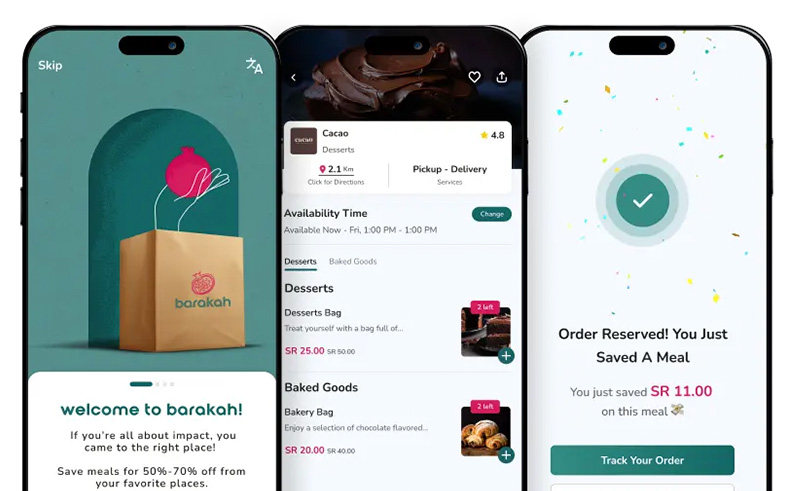
Despite Barakah’s success as a young startup, the founders had to learn to calibrate between supply and demand, for both retailers and customers.
Having too much demand and too little supply could result in losing customers. While having too many retailers, and too little demand, could hurt businesses.
“Calibrating the scale up on both the demand and supply is critical to capture value,” explains Al Saud. “On the one hand, if you have many customers registering to Barakah and not finding enough products, they are simply going to churn. On the other hand, if you sign up too many retailers and are really effective in your sales strategy, but don’t have enough demand, they will not realize the value, and likewise will churn. So, the marketplace dynamics are really important in trying to build a successful two-sided marketplace.”
One way of managing this balancing act is through marketing. Trying different marketing tactics, messaging, and doing a lot of iteration in terms of A/B testing has enabled the startup to successfully acquire customers cost-effectively. At the same time, the sales team played a critical role in driving customer acquisition and getting early adopters on board, helping Barakah grow and scale to what it is today. “My main narrative to the sales team is, think of yourselves as the central bank of surplus,” he says. “You need to get that calibration right so you have that healthy dynamic of the marketplace.”
But changing people’s behavior can be hard, particularly since culture plays a critical role in food waste. During the holy month of Ramadan, for example, the average per capita waste generation of 2.7 kilograms per day doubles to 5.4 kilograms in the UAE, according to the Dubai Carbon Centre for Excellence.
Yet, Al Saud believes that economic circumstances will eventually lead to a change in behavior. With skyrocketing inflation and rising cost of living impacting people in the region and across the globe, changing consumer behavior is inevitable. “We have this inherent belief at Barakah that what changes consumer behavior is really changing economic circumstances,” he says. “Perhaps our parent’s generation would not really be willing to purchase fresh discounted products from their favorite F&B retailers, but what really drives that change is the economic situation and the economic circumstance.”
MAKING AN IMPACT
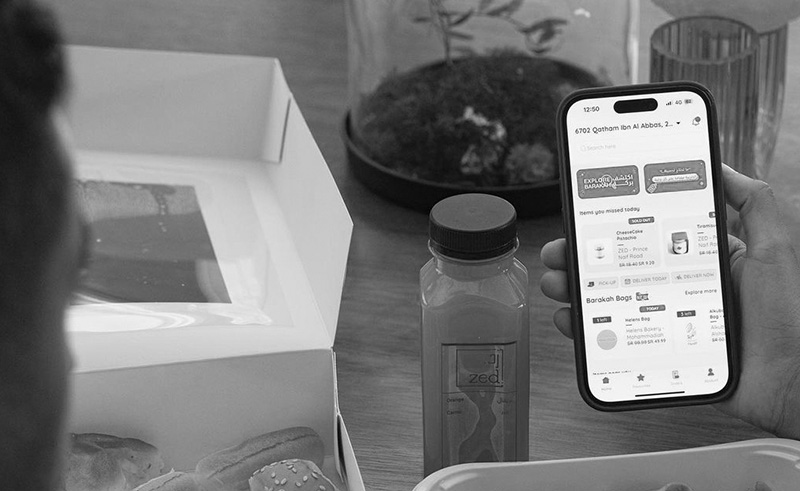
With the foodtech sector growing rapidly in Saudi Arabia, Barakah has an opportunity to tackle even more food waste in the Kingdom, and soon across the region.
According to a report by Mordor Intelligence, the Saudi F&B market is estimated at $23.48 billion in 2024, and is expected to reach $27.83 billion by 2029, growing at a CAGR of 3.4% during the period of 2024-2029.
Commenting on this growth, Al Saud believes that it will create more opportunities to address the food waste problem in Saudi Arabia. “For us as Barakah, the growth in that sector means for us by default more food waste, just given the nature of F&B operations and the high margins within the sector,” he says.
In March this year, the startup raised an undisclosed investment led by FoodLabs, a German-based VC, to fuel its growth in Saudi Arabia and the GCC region. This funding was followed by a $1.5 million seed round secured in September last year.
As such, Barakah is expanding its reach in the Kingdom by entering new cities, working with more F&B retailers, as well as groceries in the country. By doing so, it hopes to make a substantial impact in reducing food waste in the country, and ultimately the region. “Food and agritech innovation and solutions, they are not luxury. We see them as a necessity,” he says. “And we definitely see a lot of value that we can continue adding to the sector as it grows and as new retailers come online.”
- Previous Article Gynecologist Wesam Shoeib Arrested for ‘Disturbing Public Order’
- Next Article Egypt Sees a Marked Increase in Expat Remittance Inflows
Related Articles
Trending This Week
SceneNow TV
Events Calendar





